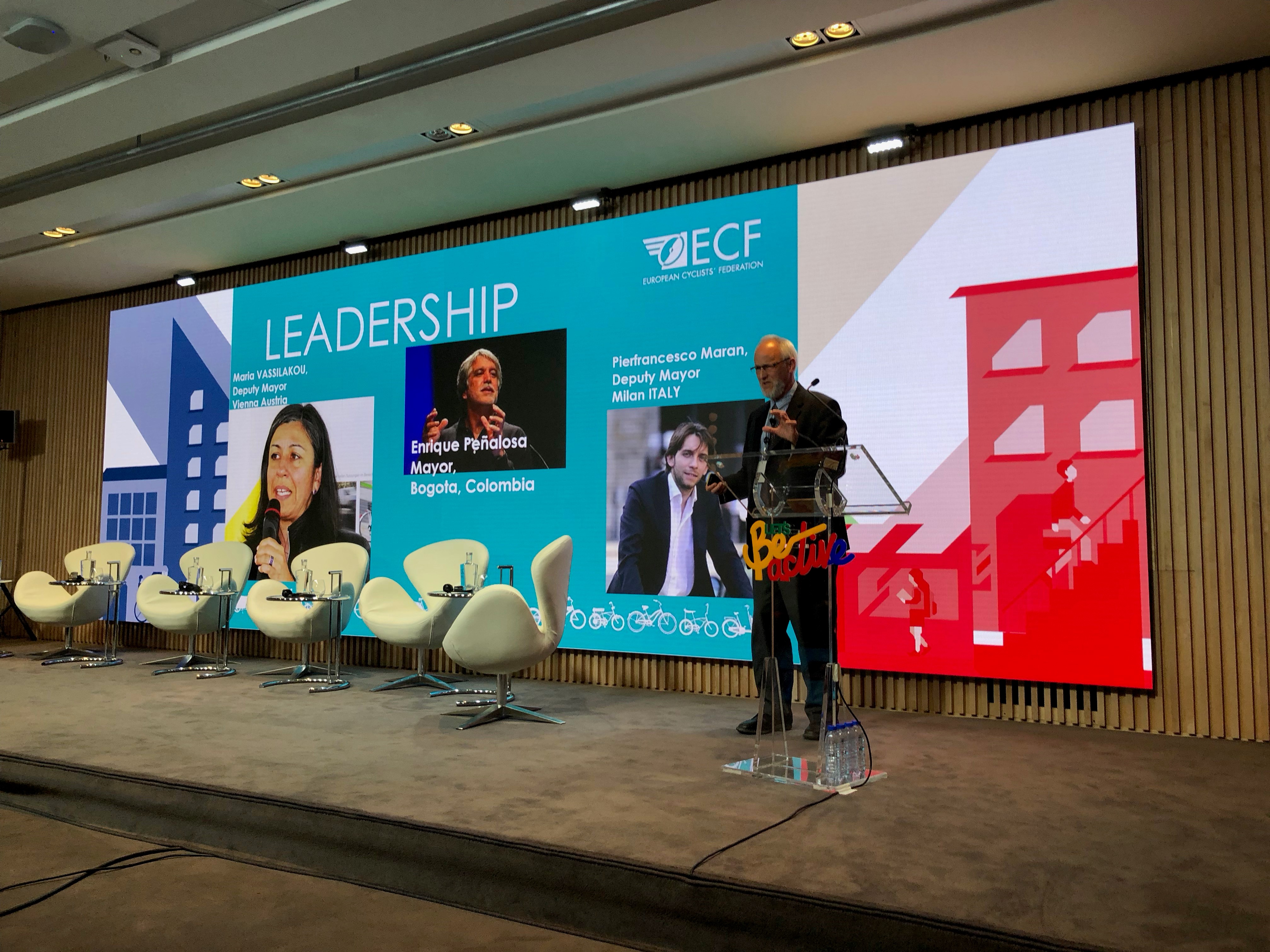
ECF speaks at WHO, UN World Health Organisation, in Lisbon
On 8 June 2018, the WHO Director General Dr Tedros launched the new WHO global action plan on physical activity 2018-2030,"'More active people for a healthier world 'at the Football City, home of the Portuguese National Football Association in Lisbon.
The Gala event counted with the Prime Minister of Portugal António Costa, Adalberto Campos Fernandes, Minister of Health, Fernando Araújo, Health Secretary of State, and Tiago Brandão Rodrigues, Minister of Education. The event was attended by over 250 guests including 60 Mayors from across Portugal and international agencies including ECF.
The day included a Workshop ‘Think Global Act Local – promoting physical activity through walking and cycling in cities and municipalities’ with over 200 registered delegates. The keynote speech was presented by Dr Tedros (WHO DG).
During the event a GAPPA launch workshop was organised with 300 attendees. Randy Rzewnicki ECF’s Health Policy Officer presented the cycling agenda as part of this “Let's talk about delivering active mobility for health” program. The talk put a special emphasis on cycling for kids, safety and the international biking best practices initiatives worldwide.
Randy stressed how we can save 100,000 lives in Europe if every adult adds 15 minutes of walking or cycling. He spoke about how we need to have more people moving and more citizens doing more physical activity. Heat was also mentioned as a WHO tool that shows how many people will live longer changing daily exercise habits.
The way most cities’ transport is organised does not improve people’s health and it can increase the risks of diseases when citizens continue with their sedentary habits. There’s a clear way ahead, changing cities and towns, making them more friendly and welcoming, for walking and cycling to school, to work, or to go shopping.
It does make a difference when kids cycle and walk to school in a safe way and for that, we need to reduce speed, volumes and make cycling safer. E-bikes and bike sharing are definitely a clear way ahead also, for those people who are not so fit, for the commuters and for those who use biking for shopping. Biking can also replace gas and conventional delivery trucks can be substituted by electric bikes, with new jobs creation and more money saving.
Like in Warsaw, Madrid and other cities, Lisbon's bike share uses electric-bikes. E-bikes are not a moving floor or escalator where people just are lazy, legal e-bikes need people to pedal, the motor only helps and if you stop pedalling, the motor stops working. In hilly cities like Lisbon, e-bikes are the solution to get people cycling and people who would not otherwise move, start practising this healthy habit.
There are several international leadership biking examples. Let’s take Bogota, Colombia where sustainable mobility supports social justice or for example Milan success story where biking has reduced pollution dramatically and has made the city so friendly for walking and cycling, that it’s become a preferred way of transport for tourists. Let’s not forget Paris with Mayor Anne Hildago and the velib initiative.
In AFRICA the World Bicycle Relief uses money from the bike industry to empower citizens to cycle, for transport and for their livelihood. WCR has developed a bike to fit the African conditions: the Buffalo bike..... These bikes are being used by midwives to get to their work; by health care professionals to get to their job healing patients, etc.
In ASIA - China once called the Bicycle Kingdom - is no longer that , we now see their largest cities clogged with cars. But there are still many cities with 30% bike mode share. In a country with a billion people, there are numerous good examples of places and stories where biking is an inspiring initiative.
In TAIWAN Taipei where the Mayor is a doctor, he has led the way (in a city that was filled with cars, and crazy infrastructure) introducing bike-sharing, cycle routes and more space for bikes. All these are numerous international examples where cycling plays a major role to increase healthier habits and healthier citizens.
Overall this was an outstanding event where ECF collaborated with WHO to raise the awareness of cycling as a way to improve health globally.
Contact the author
Recent news!
Upcoming events
Contact Us
Avenue des Arts, 7-8
Postal address: Rue de la Charité, 22
1210 Brussels, Belgium









